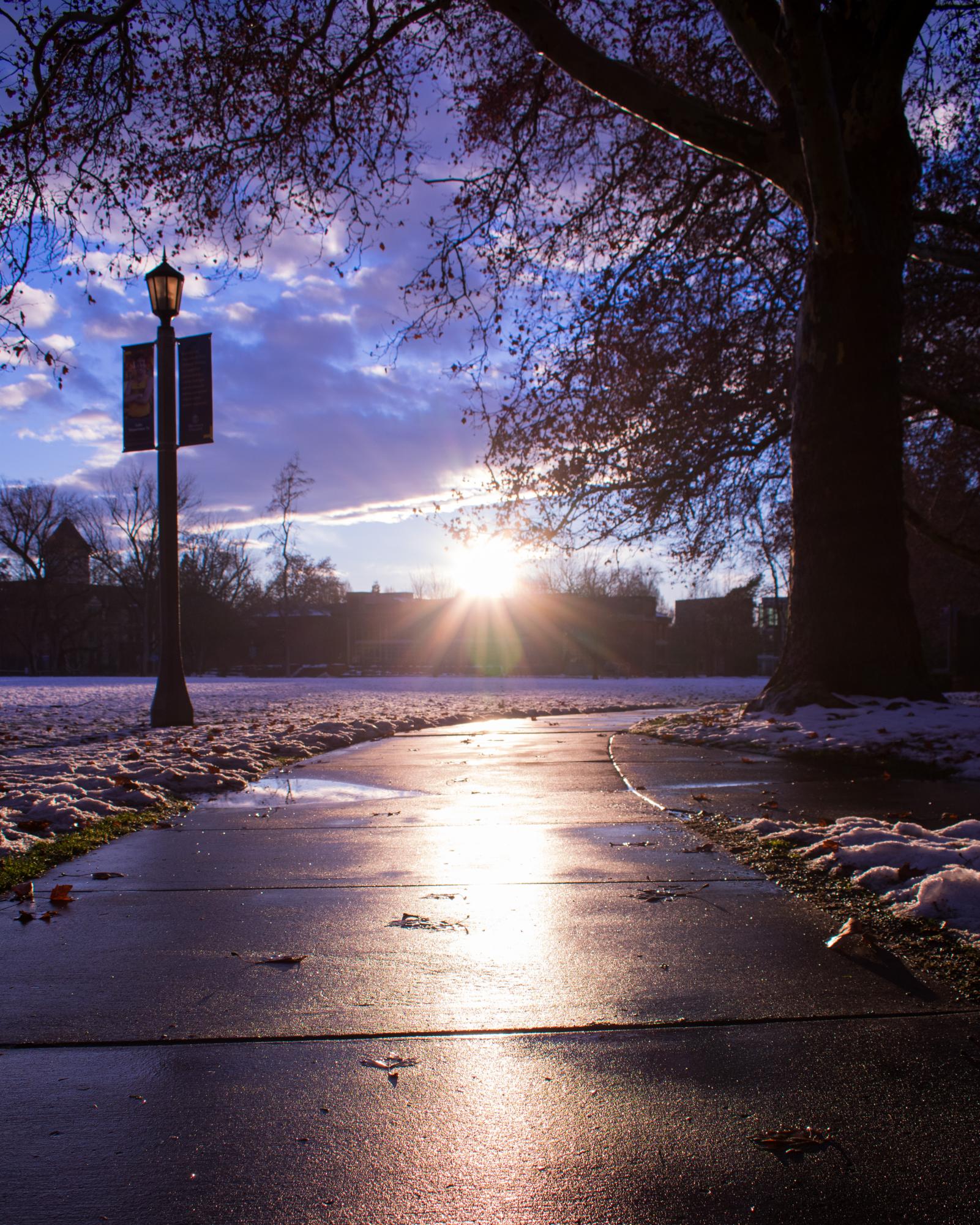
Extremely cold weather in the past few weeks made for a rough return to the Whitman campus. Classes resumed on Jan. 16, when it only got up to 11 F, and was as cold as 1 F. Students had to contend with icy sidewalks and roads.
Junior Natalie Price is from California. She expressed that navigating the cold weather was a learning curve.
“I am really bad at the cold. It took me forever to figure out what ice is safe to walk on [and] what ice isn’t safe to walk on, and my friends had to explain that to me. And I didn’t realize that you can’t see black ice. I thought you’d be able to see that, but you can’t. So I have eaten it a couple times,” Price said.
Not only were treacherous sidewalks a challenge, but the return to campus posed a difficulty for many. Price described herself as lucky to have made it back to campus when she did.
“I actually flew in the day before it started snowing, so I didn’t have any problems with my flight, but just about everyone else I know who came in later did. So I am very lucky that I got here when I did. Otherwise, I think I would have been stuck in Seattle for at least a couple days [and] might not have even made it out of California … I know someone who got stuck because of driving and then her flight got stuck too,” Price said.
In an emailed statement to The Wire, Jennifer Skoglund, airport manager at the Walla Walla Regional Airport, said that though the airport itself handled the weather well, there were still cancellations.
“The recent cold and snowy weather that Walla Walla experienced did not hamper operations,” Skoglund said. “Our airport snow plow team did an exceptional job of keeping the runway and taxiways plowed, swept and de-iced. The freezing rain and the forecast of freezing rain did impact a few Alaska Airline flights with cancellations as the maneuverability of their equipment on the commercial apron can be challenging during those conditions.”
On campus, there were other challenges. On Jan. 14, the steam plant, which heats all residence halls except for Stanton, malfunctioned. Mike Willard is in charge of operating the plant and explained what went wrong.
“Basically when the steam is leaving the boiler, there’s a situation where it starts pulling the water with it. And so it’s pulling water out of the boilers faster than water can come into the boilers … So the water would get low in the boilers and there’s an alarm that goes off and it shuts the boilers down so you can’t damage the internals of the boiler,” Willard said.
The heating issue primarily impacted Prentiss and Douglas Halls.
“By the time [the steam] got to the end of the line, which is Prentiss Hall and Douglas, all the steam in the pipes [was] returned to water,” Willard said. “I don’t think interior building temperatures ever got below mid 60s.”
Thankfully, Willard reported that the issue was fixed within a day. The cause of the malfunction is unclear, though Willard said that it could have been chemical carryover.
“If you get contaminants inside the boiler, they’ll create a surface tension on top of the water. So when it starts to boil it creates a venturi that pulls water up with it when it finally breaks that surface tension. [But] it’s really hard to say that’s what it is. There’s no way to look inside the boiler and see what’s actually happening,” Willard said.
A lifelong resident of Walla Walla, Willard also commented that the recent weather seemed unusual to him.
“Typically, we have cold weather for a week or two that will be in the single digits. We might get a night where it drops down to zero. But to have lows that are sub-zero are very rare,” Willard said.
Since the semester began on Jan. 15, temperatures have been rising, and snow and ice have gradually begun to melt. Still, the experience was an eye-opener for Price and other students unfamiliar with a colder climate.
“It’s like ‘oh, that’s really pretty,’ and then it’s like ‘oh, that’s going to be here forever,’” Price said.





